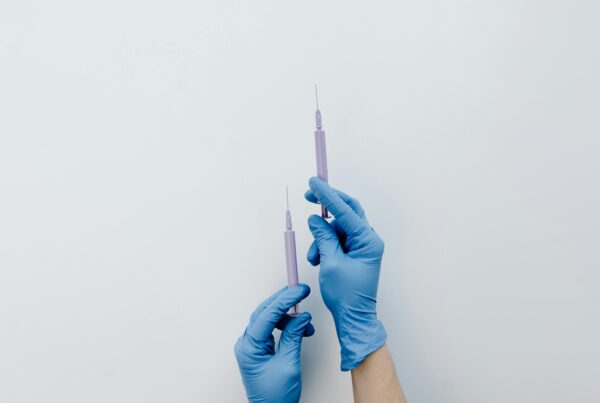Face masks have become mandatory in almost every country. It’s clear that they’re going to part of our wardrobe for the foreseeable future. However, there really is no point in wear these masks if you’re not going to do it properly.
Careless mistakes when wearing face masks can reduce their effectiveness, increasing one’s risk of contracting the coronavirus so it’s important that you ensure that you’re wearing the face mask properly.
So with that said, read on to find out which common face mask mistakes you’re making, as well as how to avoid and fix them.
12 Face Mask Mistakes You May Be Making
Mistake #1: You’re Not Practicing Hand Hygiene
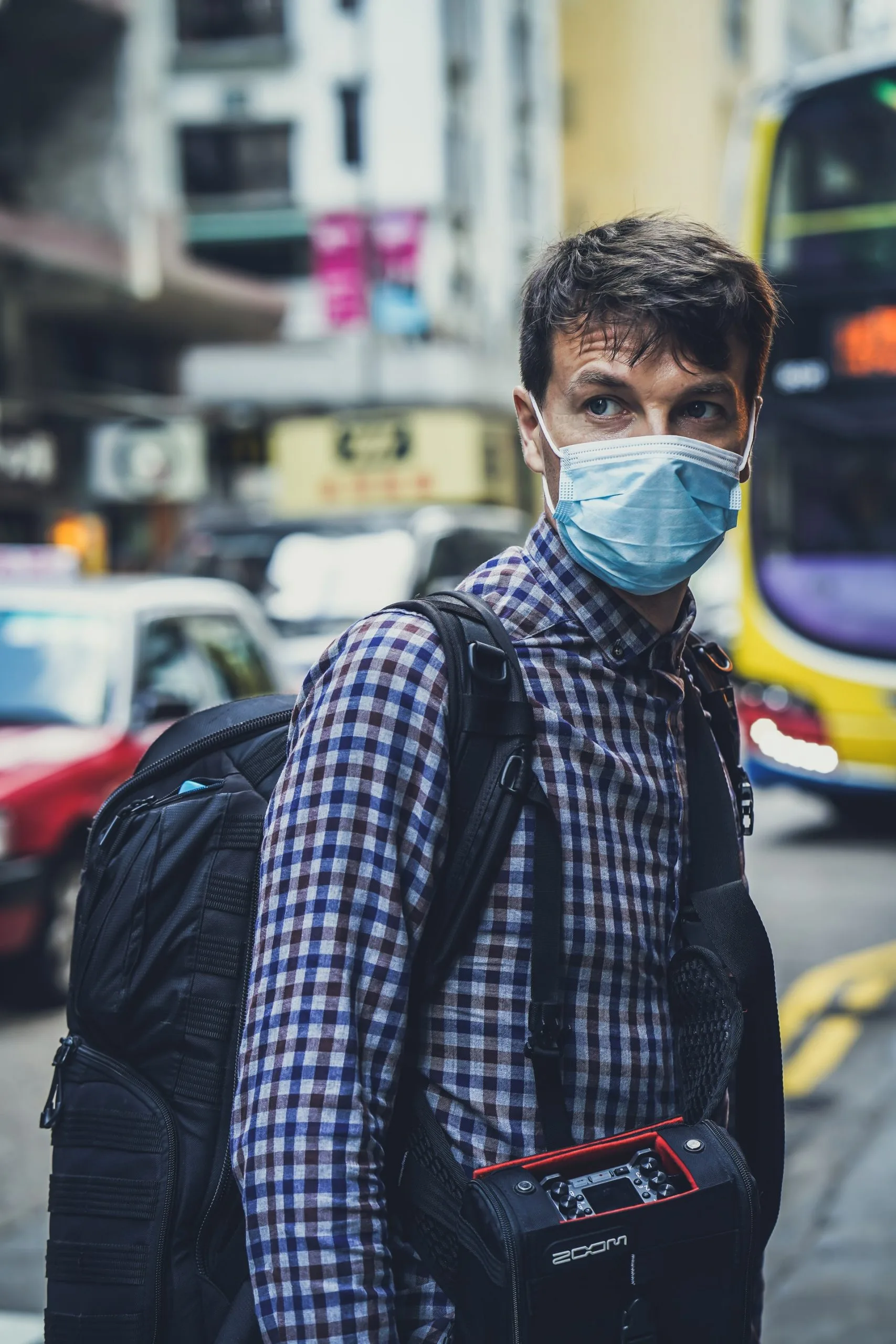
Touching your face mask, especially with unsanitized hands, can increase the risk of contamination as you’ll be spreading any germs from your hands onto your mask.
The best thing to do would be to avoid touching your face in general. However, this is easier said than done so it’s best to regularly sanitize your hands throughout the day, especially if you’ve touched your mask. You should also make sure to remove your mask after you’ve thoroughly washed your hands.
Mistake #2: You’re Nose Is Open
Wearing your mask over your mouth, and leaving your nose open, defeats the purpose of wearing a mask. As we breath partially, or completely, through our noses, the risk of infection is higher as you may inadvertently inhale viral particles through your nostrils. Moreover, if you are infected and you happen to sneeze, you raise the risk of infecting the next person.
Mistake #3: You’re Using A Wet Mask
If you happen to sneeze or cough into a mask, it’s important to discard it as a wet mask is less effective.
Once a mask becomes wet, you should either throw it away or washed and left to dry while you use a dry one in its place.
Mistake #4: You’re Taking it Off Wrong
When you’re taking off your mask, there is the risk of you contaminating yourself as you take it off.
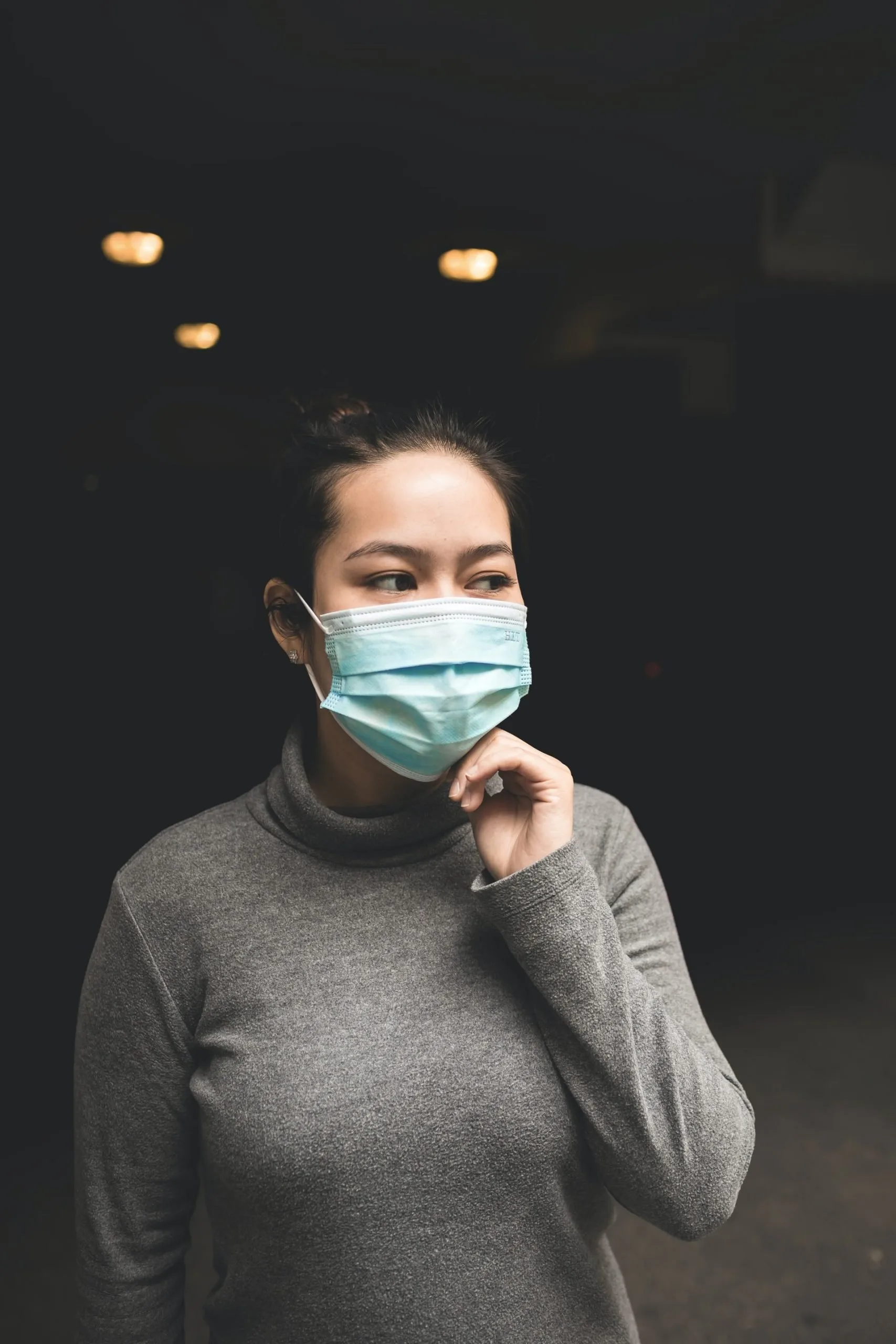
For instance, the bacteria on your mask may make its way to your hands, and it could then spread from here.
That said, it’s advisable to wash your hands before you take off your mask. It’s also best that you don’t touch the front of the mask as you take it off. Rather, take it off by unlooping or untying the strands from your ears, making sure to avoid touching the front.
Mistake #5: You’re Wearing the Wrong Size
There’s no point in wearing a face mask if it doesn’t fit well. If it’s too small, then you’re probably leaving your nose exposed and if it’s too loose, then viral particles are more likely to get in through the side openings. What’s more, if your mask doesn’t fit well then you’re going to be constantly readjusting it, which then increases the risk of contamination.
Your mask should fit snugly on your face, but not so tight to the point where it makes it difficult to breathe normally.
Additionally, facial hair may make it harder to wear a mask so you may want to think about trimming your beard.
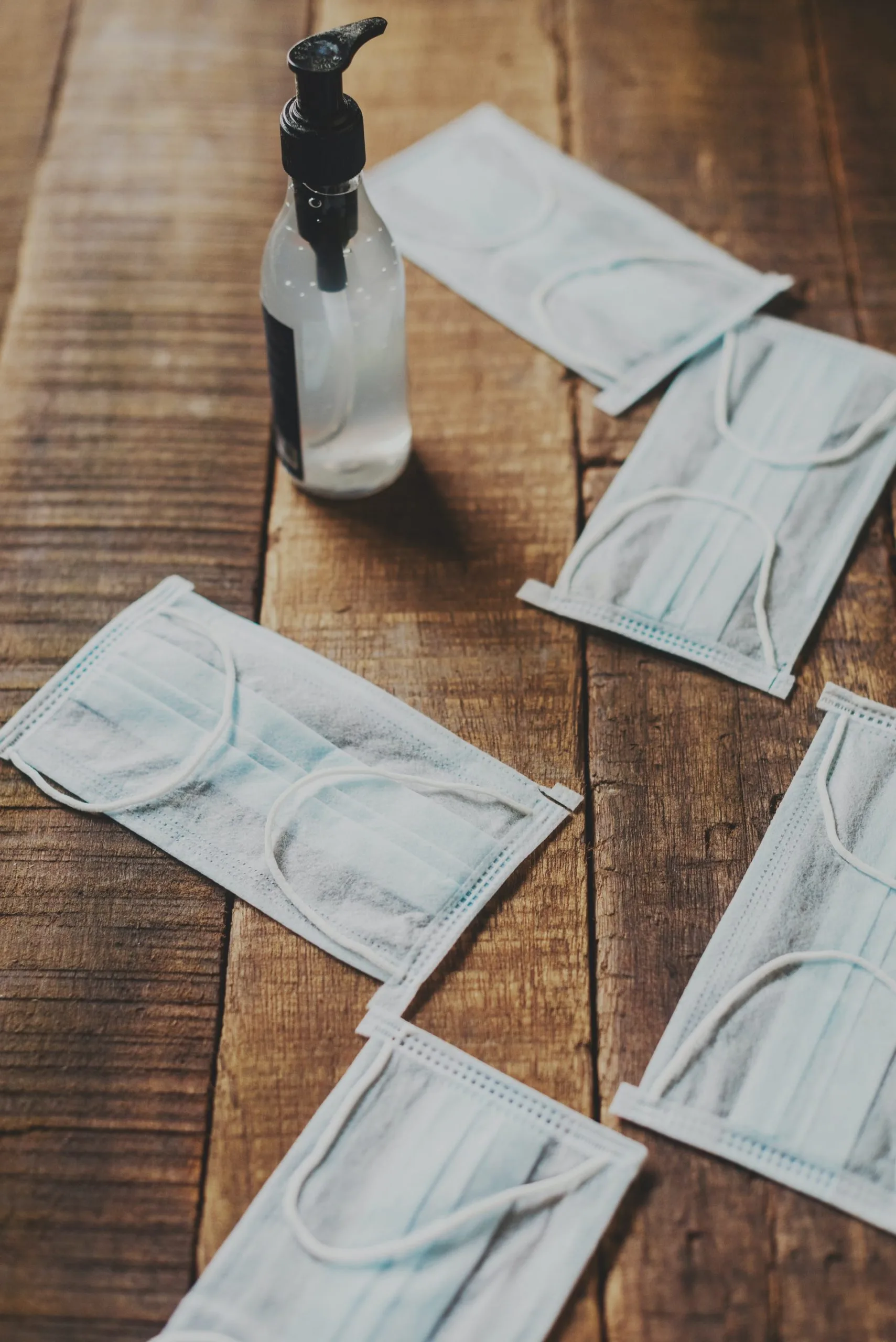
Mistake #6: You’re Not Cleaning It
Not washing your face mask after use is probably one of the major mistakes that a lot of us make.
If you’re using a reusable mask, it’s important that it’s not contaminated and one of the best ways to prevent this is by washing it. You can throw it in with your laundry and use the hot water setting on the washing machine. Make sure the mask is thoroughly dry before wearing it again.
Mistake #7: You’re reusing disposable masks
If you’re using a single-use mask, then you really should only use it once as it’s basically useless after its first use – especially when you consider that it can’t be washed so you’re basically walking around with a wet and contaminated mask.
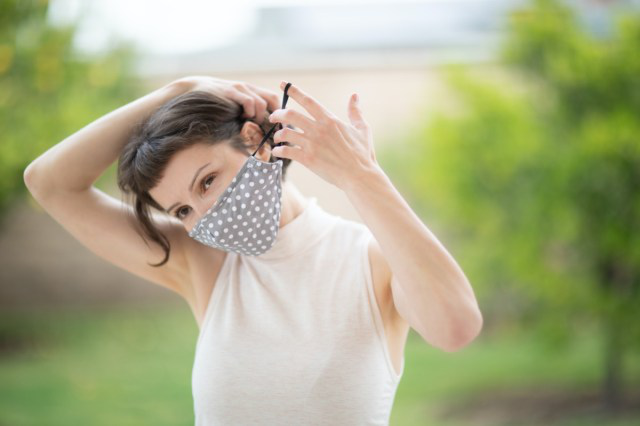
Mistake #8: Removing the mask to talk to someone
You should not be taking off your mask when you’re around people. What’s more, you certainly should not be taking it off to talk to said people.
Keep your mask on, and project your voice so that the people around you can hear you clearly.
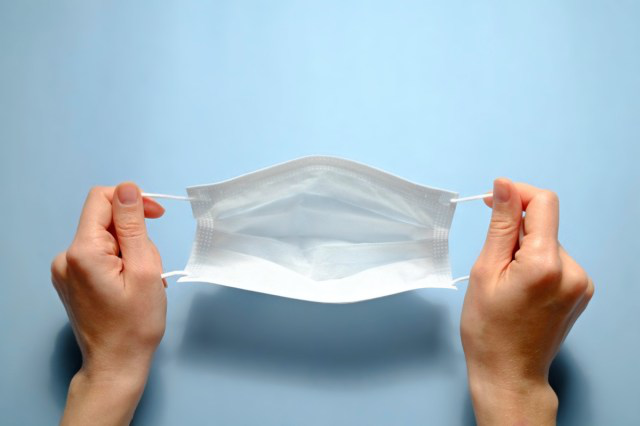
Mistake #9: You’re Choosing the Wrong Material
Yes, face masks have become a fashion statement, and they can be made out of many fabrics. However, it’s important that you opt for masks that are made of breathable materials, like cotton.
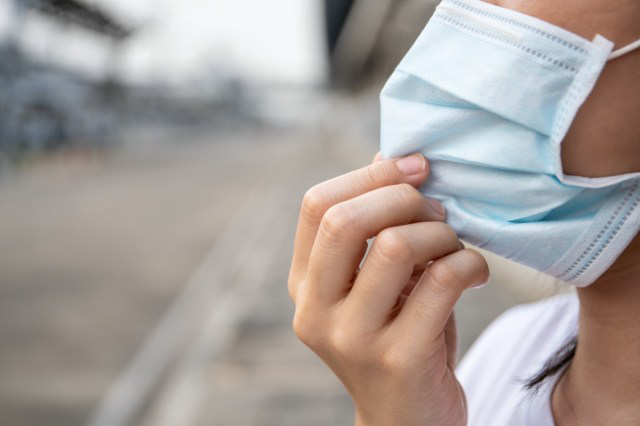
Mistake #10: Your chin is exposed
Your face mask should cover the entire bottom half of your face, and this includes your chin. An exposed chin can attract viruses and these germs can spread to your mouth and nose.
Mistake #11: You’re No Longer Social Distancing
Yes, a face mask can help to curb the coronavirus infection rates. However, it’s only the piece of the puzzle, a puzzle that includes practicing social distancing.
Mistake #12: You’re not wearing a mask
A study published in the Lancet found that the use of face masks helped to reduce the risk of spreading COVID-19 by around 85%.
The fact of the matter is, face masks are a great way to curb infection rates. By wearing them, you’re doing you, and everyone around you, an incredible favour.


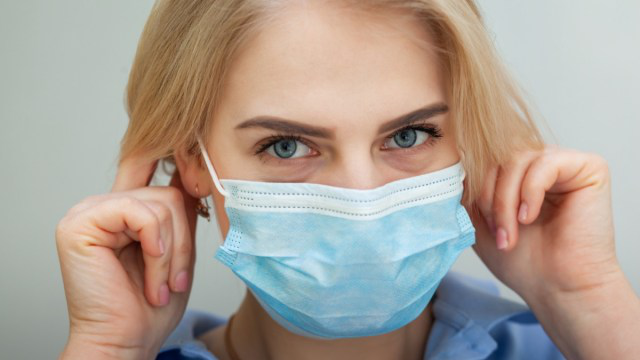


![women [longevity live]](https://longevitylive.com/wp-content/uploads/2020/01/photo-of-women-walking-down-the-street-1116984-100x100.jpg)





